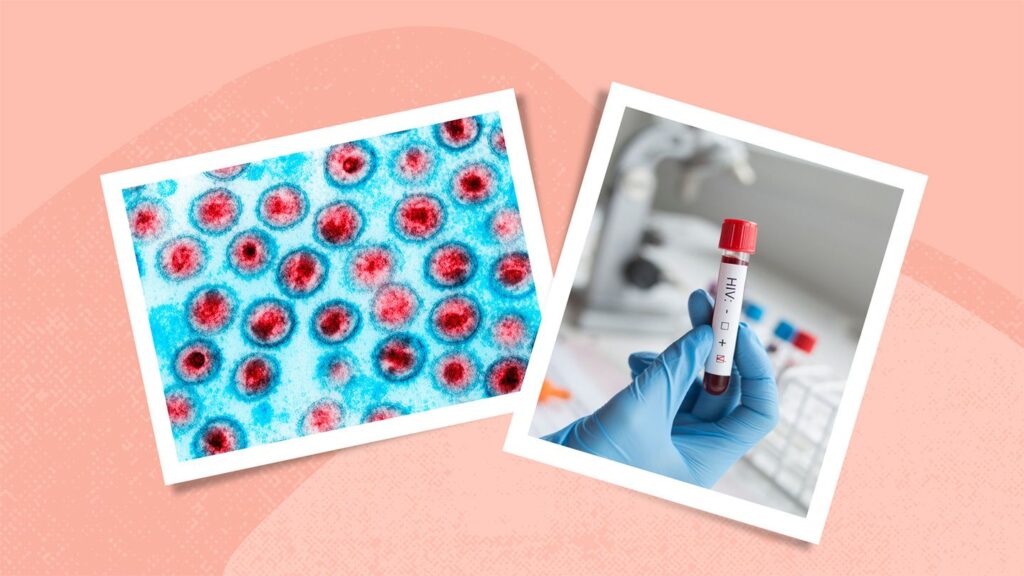Cervical cancer is a type of cancer that starts in your cervix (the lower part of a woman’s uterus that connects to the vagina). The initial signs and symptoms are often vague but may include pelvic pain or abnormal bleeding.e60dc2a1-f33c-4a05-9b50-8e3e8e597629a983da06-6aa1-444e-b382-65508539908b
Symptoms of Cervical Cancer Symptoms At first, cervical cancer might not cause any signs or symptoms at all. That’s why it’s hard to detect this cancer in its early stages without regular screenings .e60dc2a1-f33c-4a05-9b50-8e3e8e597629de5e1873-fe02-4a4e-8ee2-4c957c135e3d But as the cancer grows, you might experience more noticeable problems.e60dc2a1-f33c-4a05-9b50-8e3e8e597629d5fbc2e7-8934-47c4-9bd4-1d139ef55b52 Still, early-stage cervical cancer can sometimes cause symptoms. Some symptoms to watch out for include:e60dc2a1-f33c-4a05-9b50-8e3e8e597629deda3e32-1189-4eef-98d4-dc0d5b71c3c4 Vaginal bleeding after menopause Vaginal bleeding after sex Bleeding between your periods Menstrual bleeding that’s heavier or lasts longer than usual Vaginal discharge that’s bloody or is watery with a strong odor Pain during sex When cervical cancer spreads beyond the cervix and becomes advanced, symptoms may include:e60dc2a1-f33c-4a05-9b50-8e3e8e597629deda3e32-1189-4eef-98d4-dc0d5b71c3c4 Difficult or painful urination or bowel movements Bleeding from the rectum during a bowel movement Blood in the urine A dull backache Swelling of your legs Pain in your belly Feeling tired Diarrheae60dc2a1-f33c-4a05-9b50-8e3e8e597629de5e1873-fe02-4a4e-8ee2-4c957c135e3d Weight loss or loss of appetitee60dc2a1-f33c-4a05-9b50-8e3e8e597629de5e1873-fe02-4a4e-8ee2-4c957c135e3d These issues could also be indicators of other health conditions. The only way to know if your symptoms are signs of cervical cancer is to see your doctor for testing.e60dc2a1-f33c-4a05-9b50-8e3e8e597629deda3e32-1189-4eef-98d4-dc0d5b71c3c4
Types of Cervical Cancer Types There are two main types of cervical cancer. Squamous Cell Carcinomas These cancers develop from cells in the ectocervix, which is the outer part of the cervix that doctors can see during a gynecological exam.e60dc2a1-f33c-4a05-9b50-8e3e8e597629af8f68e6-bf93-42b0-a895-7f0e34c4baac Roughly 80 percent to 90 percent of cervical cancers are squamous cell carcinomas.e60dc2a1-f33c-4a05-9b50-8e3e8e597629de15fac5-583f-4564-88ac-f94a1f8c1086 Adenocarcinomas These cancers develop in the glandular cells of the endocervix, which is the opening of the cervix that leads to the uterus.e60dc2a1-f33c-4a05-9b50-8e3e8e597629f5851472-80e4-4948-bff3-2dc09a49ec3b Adenocarcinomas account for 10 percent to 20 percent of cervical cancers. e60dc2a1-f33c-4a05-9b50-8e3e8e597629de15fac5-583f-4564-88ac-f94a1f8c1086 You can also have features of both types of cervical cancer. This is called mixed carcinoma or adenosquamous carcinoma. Additionally, other types of cancer can develop in the cervix, but these are rare.e60dc2a1-f33c-4a05-9b50-8e3e8e5976296c3f1931-e861-4ff4-8ddc-45fafbd87836
Potential Complications of Cervical Cancer Complications Cervical cancer can lead to complications, which are secondary health problems. Some possible complications include:e60dc2a1-f33c-4a05-9b50-8e3e8e5976295f8d9640-da19-46bd-9402-98c580b3587e Pain: If the cancer spreads, you might notice pain or discomfort. Kidney damage: Cervical cancer can cause kidney failure in its advanced stages. Change in bathroom habits: You may have difficulty peeing. Or, you could experience bowel changes, such as constipation. Bleeding: You may bleed from your vagina, bladder, or rectum if cervical cancer spreads to other parts of your body. Blood clots: Cervical cancer might slow your blood flow and increase your risk of clots. Fertility issues: You may have trouble getting pregnant or experience miscarriage after treatment for cervical cancer. Some women can’t get pregnant at all, but your fertility status will depend on the treatment you receive. Treatment side effects: Cancer therapies can cause problems like nausea, vomiting, fatigue, and sexual dysfunction.
When to See a Doctor Doctor’s Visits You should see your doctor if you develop unusual symptoms, particularly:e60dc2a1-f33c-4a05-9b50-8e3e8e597629e1b841ac-2745-42af-bcae-0f6916ae4ee3 Bleeding between your periods Bleeding after menopause Watery vaginal discharge Pain during sex or pelvic pain during sex Your doctor may recommend a Pap smear or other tests to see if you have cervical cancer or something else. Catching the cancer early can lead to a better prognosis, so you shouldn’t hesitate to see your health provider.e60dc2a1-f33c-4a05-9b50-8e3e8e597629e0f156df-0800-414c-944d-40f298e38b06
The Takeaway Cervical cancer can cause symptoms like abnormal bleeding, discharge, and pain during sex. But these vague symptoms can sometimes be overlooked, highlighting the importance of regular screenings. Ask your doctor about any unusual signs and symptoms, because early diagnosis and treatment of cervical cancer are linked to a better prognosis.
Resources We Trust Mayo Clinic: Mayo Clinic Minute: Cervical Cancer Screening Cleveland Clinic: Pap Smear American Cancer Society: Can Cervical Cancer Be Found Early? National Cancer Institute: Human Papillomavirus (HPV) Vaccines Moffitt Cancer Center: Five Signs of Cervical Cancer Beyond Early Detection
Cervical Cancer Symptoms



